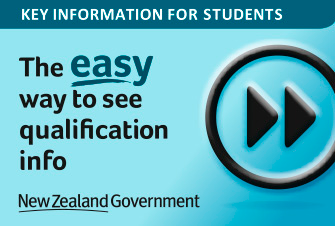Programme overview
Earthquake engineers design new buildings and infrastructure to withstand disasters, and assess the vulnerability of existing buildings and infrastructure, drawing from expertise in structural and geotechnical engineering.
The University of Auckland is internationally recognised for our strengths in these fields, putting us in the right position to deliver specialist professional capabilities to both New Zealand and internationally, where there are increasing population densities in seismic regions.
The PGCertEqEng provides an introduction to postgraduate study in this field — students will take a total of four taught courses that they can pursue further in masters-level study if they wish; it is a particularly good option for those with a civil engineering background who want a taste of postgraduate-level study without committing to it long-term.
This qualification also boasts options for part-time study, with classes offered outside of work hours and as block courses, so it is also suited to practising industry professionals who are intending to further their knowledge and career.
Programme structure
The Postgraduate Certificate in Earthquake Engineering is a taught programme. You will have to complete the following:
- CIVIL 720 Earthquake Engineering (15 points)
- 45 points (three courses) from elective options listed in the Master of Earthquake Engineering Schedule, excluding CIVIL 793 and 794.
You'll also need to meet other requirements, including time limits and total points limits. See Postgraduate enrolment.
Subjects available in this programme
- Earthquake Engineering
2025 entry requirements
My highest qualification is from:
Programme requirements
Minimum programme requirements
Minimum requirements listed here are the likely grades required and do not guarantee entry. We assess each application individually and applicants may require a higher grade to be offered a place.
-
Study optionTaught 60 pointsGrade requiredGPA Grade Point Average 2.5
Further programme requirements
Taught 60 points
Completed the requirements for the Degree of Bachelor of Engineering or Bachelor of Engineering (Honours) from this University with a Grade Point Average of 2.5 or higher in 60 points above Stage III.
Bachelor's degrees in relevant fields such as applied science and technology may be considered with a GPA of 3.0 in at least 60 points above Stage II.
Programme requirements
Minimum programme requirements
Minimum requirements listed here are the likely grades required and do not guarantee entry. We assess each application individually and applicants may require a higher grade to be offered a place.
-
Study optionTaught 60 pointsGrade requiredGPE Grade Point Equivalent 2.5
-
QualificationIELTS Academic International English Language Testing SystemScore required6.5
No bands below 6.0.
Further programme requirements
Taught 60 points
An undergraduate degree in a relevant subject, with a GPE of 2.5
How much does a Postgraduate Certificate in Earthquake Engineering cost per year?
2025 fees
- Domestic students
- NZ$6,063.60*
- International students
- NZ$26,421*
Fees are set in advance of each calendar year and will be updated on this website. Fees are inclusive of 15% GST, but do not include the Student Services Fee, course books, travel and health insurance, or living costs. Amounts shown are indicative only. In addition to the tuition fees, there is a Student Services Fee of $9.24 per point, estimated at $554.40 for full-time study (60 points). Fees will be confirmed upon completion of enrolment into courses.
*Please note: amounts shown are indicative and estimates only.
Find out about financial support information
Scholarships and awards
Find out about the scholarships you may be eligible for.
Student loans and allowances
Are you a New Zealand citizen or resident? You could be eligible for a student loan or allowance.
Cost of living
Get an idea of how much accommodation and general living in Auckland will cost.
Key dates
Please note: We will consider late applications if places are still available. International students should start the application process as early as possible to allow sufficient time to apply for a visa.
Application closing dates
- Semester One 2025
- 8 December 2024
- Semester Two 2025
- 4 July 2025
Start dates
Here are the start dates for the programme.
| Semester One | Starts – 3 March |
|---|---|
| Ends – 30 June | |
| Semester Two | Starts – 21 July |
| Ends – 17 November |
| Semester One | Starts – 2 March |
|---|---|
| Ends – 29 June | |
| Semester Two | Starts – 20 July |
| Ends – 16 November |
Other important dates
See important dates for the academic year, including orientation, enrolment, study breaks, exams, and graduation.
Where could this programme take you?
The PGCertEqEng is designed specifically as an entry pathway towards a Master of Earthquake Engineering degree, though advanced knowledge in earthquake engineering will boost your employability in a field with increasing need for expertise.
Student career planning service
Once you become a student at the University, you can get help with planning and developing your career from Career Development and Employability Services.
Do you need help?
Can’t find the answer in AskAuckland?
Need to speak to someone?
You can phone us directly.
- Auckland
- 923 5025
- Outside Auckland
- 0800 61 62 63
- International
- +64 9 373 7513


